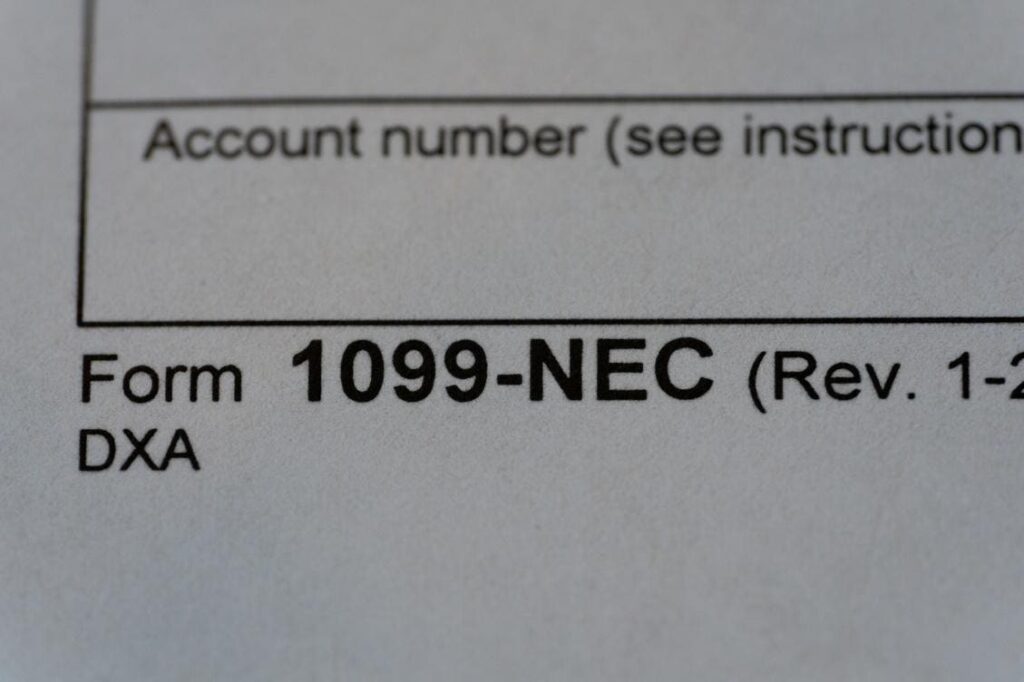If you received a lawsuit settlement in 2024, you probably received an IRS Form 1099 from the defendant in early 2025. Some types of cases are exempt, but most are not. And if you receive a Form 1099, you need to report it on your taxes. But what if you also receive a Form 1099 from your own lawyer for the same money? It happens more than you might think.
Some lawyers believe they need to issue their client an IRS Form 1099 to match the amount of the disbursement. But is this required by the IRS, or is it otherwise a good idea? Usually there answer is no on both counts. Suppose that a case settles for $1 million, and 40% of that is the lawyer’s fee. The lawyer can expect a Form 1099 for $1 million, but it will be a gross proceeds Form 1099 that is merely reporting the payment transaction—without any characterization whether it is income or not. It is just a payment to a lawyer or law firm. If 40% of a $1 million Form 1099 is income to the lawyer, the lawyer reports that $400,000 as income.
Client Tax Problems
How about the client? Except in physical injury cases, the plaintiff will usually receive a Form 1099 for the whole $1 million, even if the lawyer received all the proceeds and disbursed $600,000 to the client. Hopefully the plaintiff can find a way to deduct the $400,000, which is easy in some cases but not in others. But what if the client ends up with the $1 million Form 1099 from the defendant, AND a $600,000 Form 1099 from the lawyer? It looks like the plaintiff received a whopping $1.6 million when they really only collected $600,000.
The client can address these issues on his tax return, but it doesn’t look great and can prompt an audit. A prime technical reason that in most cases the lawyer should not issue a Form 1099 to his own client is that the lawyer is not the “payor” of the money. Even if the proceeds are disbursed by the lawyer to his client, the payor of that money with Form 1099 obligations is the defendant. Notably, issuing a Form 1099 to the client does not improve the lawyer’s tax position either. It is filing a form that is not legally required and it can materially prejudice the client’s own tax position.
Lawyer Tax Deductions?
Some attorneys believe that they need to issue a Form 1099 to their clients so they can deduct the client’s portion of a settlement from the lawyer’s income. In reality, an attorney is not required to include the client’s portion of a settlement in their gross income in the first place. This is so even if—as is typical—100% of the settlement is reported to the attorney on a Form 1099. The reason is the unique type of Form 1099 that only lawyers receive for settlement proceeds. Defendants send lawyers a Form 1099-MISC with the amount filled in on Box 10, which is only for “Gross Proceeds Paid to an Attorney.”
Clients, on the other hand, may receive a Form 1099-MISC, Box 3 (which is for “other income”), or a Form 1099-NEC. The latter is for non-employee compensation, which triggers self-employment taxes, in addition to income tax. As nearly every taxpayer knows, Forms 1099 are matched with taxpayer Social Security numbers or taxpayer ID numbers. That way, the IRS can easily see if the payment was reported on your tax return. However, the “Gross Proceeds Paid to an Attorney” box on Form 1099-MISC is unique. It is not tracked as income, it is just a payment to a lawyer or law firm. So with only rare exceptions, the lawyer does not need to send a Form 1099 to the client, and there is no IRS matching problem.
Read the full article here

